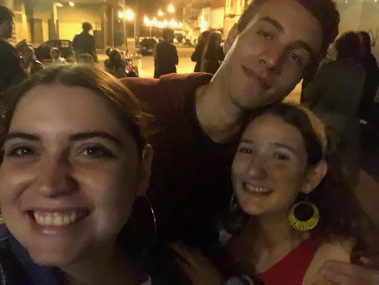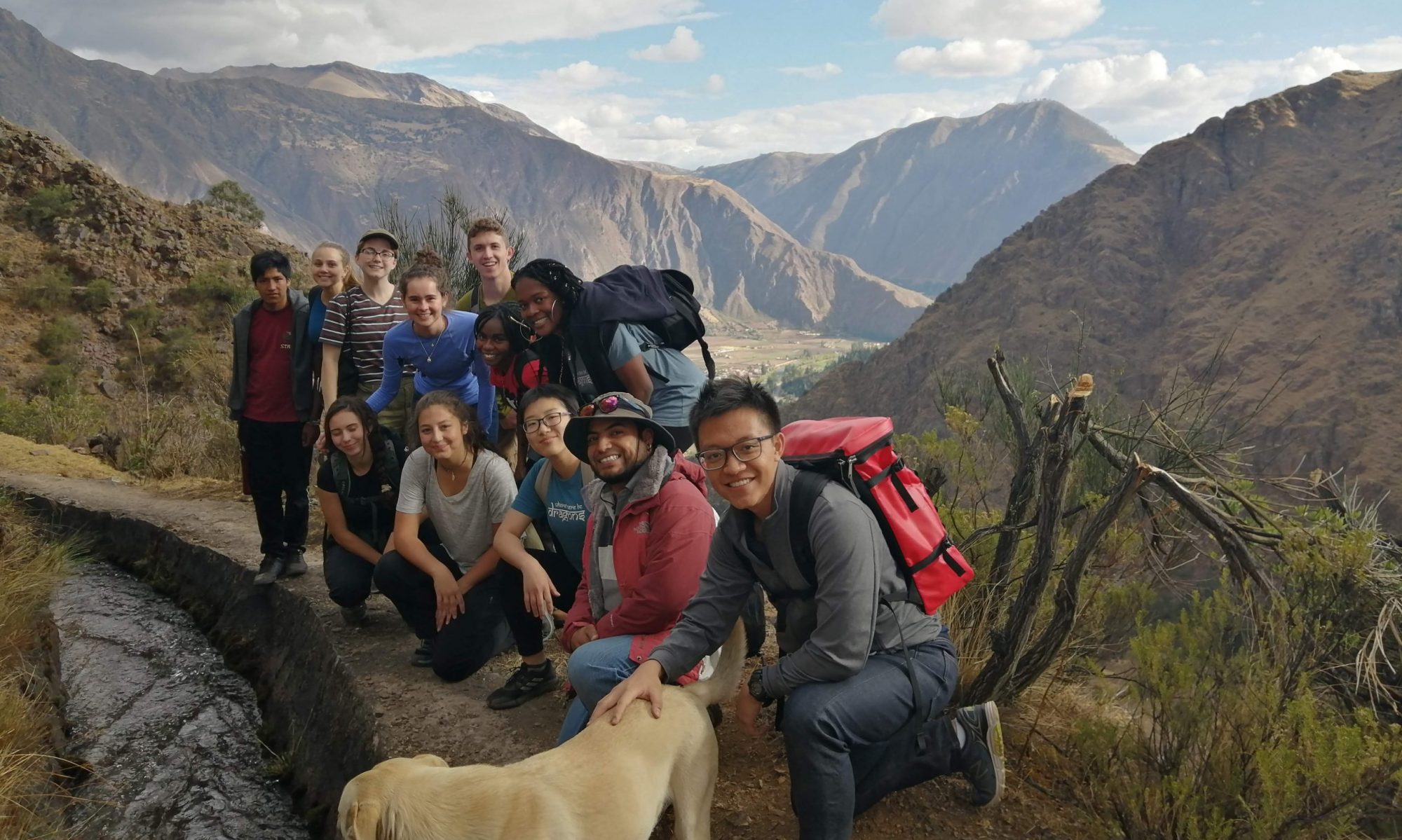by Giovana, Tufts 1+4 Participant
I walked into my neighborhood’s TATA (a supermarket chain in Uruguay) on the morning of my two-month early departure, due to the pandemic, to buy some Uruguayan essentials: dulce de leche, yerba, y membrillo. As I entered the store my attention was immediately drawn to the song playing on the overhead speakers. I started singing along in my head, “Caballero… Recuerde que el amor es lo primero.” My mind drew the connection instantaneously that the song playing was “Alegre Caballero” by Rubén Rada.
Before this year, I had only come to Uruguay once 5 years ago with my sister and dad, and we had listened to that song on repeat because it was the only CD in my Uncle’s car. I stopped in the middle of the aisle and allowed myself to embrace all of the nostalgia in that moment. It felt as though it was this perfect paradox: Where the in-country exploration of my Uruguayan culture/heritage had begun and ended.
I had always felt that I was lacking a personal connection to the country, preventing me from claiming my “Uruguayanness.” It had always been a place of relevance but one I couldn’t fully grasp. Both my parents would talk about how our culture and their experiences living there influenced them deeply but without further explanation. Beginning this bridge-year, I had this expectation that I would leave fully feeling confident to claim my Uruguayan identity yet it became so much more than that.
In October I met two people who became my closest Uruguayan friends throughout my bridge-year: Marcelo and Agustina. They both allowed me to connect intimately to Uruguay as a country, by being a platform to meet more local youth and subsequently deepening my connection to the language. The more time I spent with each of them the more I learned. Sometimes Marcelo would say things like “manzana” (apple) accompanied by a hand gesture, and claimed he was teaching a very slang version of Uruguayan Spanish. He advised me to never use it in a formal context, which eventually became an ongoing joke that I would later tease him about in the months following. Agustina would always invite me to cool “underground events” which allowed me to uncover deeply the city of Montevideo and take advantage of everything it had to offer. These friendships created a foundation and a tangible connection to Uruguay. Such experiences allowed me to construct a Uruguayan life of my own, independent from that of my family.
Once I had that foundation and felt increasingly comfortable in the life I was constructing for myself, I began to understand my own upbringing better and the references my parents would make. I can picture my dad taking a bus from the countryside into Montevideo to sell fresh fruits and vegetables in the local ferias on the weekend. I can picture my mother at her boarding school, looking out her window into her ocean view. It’s simply being in the country and picking up the customs, and hearing the day-to-day noises in the environment that brings more awareness and understanding of my roots.
After spending 7 months in Uruguay, I realized I grew up more “Americanized” than I thought and learned to embrace being a yankee (gringa), or as some of my friends called me, “Uruguaya-yanki.” Before this year, I would’ve gotten defensive about being called these names and would’ve felt invalidated of my identity but instead, to my surprise, this year taught me how to embrace it. While it still may take time to fully embrace myself as a Uruguayan-American, I left making a home of my own, feeling more connected to my roots, and confronting parts of my identity that used to make me insecure. There is so much more reflection about my experience that I anticipate having and unpacking throughout the next few months and beyond, but I feel more confident than ever of who I am. The song Alegre Caballero” by Rubén Rada, will forever be an ironic symbol making my own identity out of a collective one and mark a place of my own in Uruguay.

